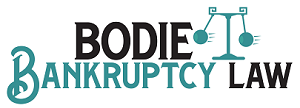What is Electronic Court Filing?
Electronic filing, also known as e-filing, is the process of filing court documents electronically. E-filing uses online approved software by the relevant legal team of respective departments.
Efling services have overtaken the traditional paperwork for filing legal documents. While most private law firms have embraced e-filing practices, many public practitioners remain skeptical about e-filing court documents.
There’s a need for private law firms to change gear from the traditional paper and pen system to a more reliable e-filing option.
How can a law firm e-file legal documents?
Most states allow registered users to file legal documents because the service is available on a daily basis. An attorney can access files at the click of a finger on the software. One can do it on their laptop or any updated electronic device like a phone.
A legal document is deemed received for filing when the receiving end of the system accepts it. The positive feedback allows a lawyer not to rush to court in person to file a document in time for submission. Additionally, it saves time that one would have used to queue in the waiting line. Therefore, one can attend to court proceedings or other critical matters.
It is crucial to know that particular cases cannot be filed electronically. One must check with the local court in their area to see which cases are eligible for e-filing and which ones are not.
Advantages Of E-filing
- It’s time-saving
E-filing is a time saver. E-filing is highly effective and allows law firms to improve efficiency. Case documents are transferred through a secured connection that cuts the queue, saving you the hustle of making lines in chambers. A law firm can also reduce expenses for courier services. Additionally, one does not have to leave the office at odd hours to file a document.
Court clerks can breathe easily and reduce the trips they have to make to file documents appropriately. A few clicks on the application on your device can help process documents in minutes. E-filing also reduces the stress involved in shuffling through papers on a workstation.
If you’re an attorney, you do not need to wait for your case files to read the addition of new documents because the system updates instantly. E-filing uses smart applications and updates recent changes immediately after they’re loaded.
- Better use of resources-human and otherwise
The legal profession is one of the greatest consumers of paper, and ink. Typically, an average firm can use up to fifteen thousand sheets of paper per attorney per year. Walk-in any lawyer’s office and estimate the volumes of paperwork stashed in files, cabinets, and lockers.
The papers found in a law firm are not blank. They are printed with critical information to make them relevant to a case. Printing is costly, messy, and requires space. E-filing clears offices of all printing papers, inks, and cabinets.
E-filing also allows attorneys and clerks to make additions or alterations to a document at the last minute in a client’s case.
Consequently, E-filing is cost-effective because the cost of paper, ink, files, and cabinets is eliminated. Typically, every detail is compressed to fit on an electronic platform. E-filing is a step shy of a paperless court system.
- Increased accessibility
E-filing allows legal professionals to view primary records at the click of a finger. Many people can check critical files at once without inconveniencing others. In the traditional filing system, one person can access a document at a time.
A person can access documents regardless of their distance and time difference. The legal professionals can review case files simultaneously and make additions, submissions, and alterations as deemed fit. Therefore, individual documents can be revisited at any time because of increased accessibility.
- Enhanced security for legal documents
Most courthouse rules allow for a valid driver’s license holder to pick up and carry a document from the court. Therefore, it becomes difficult to track any alterations, additions, and modifications. A discrepancy can drag a case profile and delay a hearing.
On the contrary, it isn’t easy to modify digital files. Advanced e-filing systems run through the documents to ensure no modifications after the original filling date and time. E-files remain intact as uploaded and are more authentic than paper documents.
- Improved access to information
Paper documents are subject to a reader’s perception. It also depends on one’s ability to highlight and retain critical details. Whereas reading and highlighting may be critical for comprehension, reading on a digital screen opens up new possibilities.
A reader can search a document by a term allowing greater control over the information captured. Additionally, one can search information using keywords and phrases to note repeated or enhanced details across pages.
- Improved control
E-files allow for remote tracking and access. Digital monitoring makes it possible for the involved parties to schedule submission and change status, dates, and times. It also allows for risk mitigation with refined transparency.
- Enhanced accuracy
E-filing is seamlessly error-free because the state of uploading files remains the same unless altered by an authorized source. Court files move automatically through the judicial system. E-filing significantly reduces human error. It also enhances the chances of sending a file to the appropriate court section. Stray files are easily retrieved and packaged. Cases of misplaced or missing files are significantly reduced.
The filing procedure is also made easy and transparent. It allows for quick feedback on records, fees and filing status.
- Saves on space
Traditionally, paper documents were considered truthful but corruptible. However, the files require a lot of space, and at times, the warehouse would be dedicated to storing court documents. E-filing may not eliminate the need for physical filing, but it saves the need for on-site document storage.
Conclusion
E-filing is the way for the court system to go. Most private law firms benefit from paperless technology. E-filing is efficient; it saves time, space, and money and enhances performance in the judicial system. Most services have moved to the e-platform and the judicial system is no different. Talk to an e-filing service provider and enhance your firm’s court trend.

